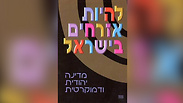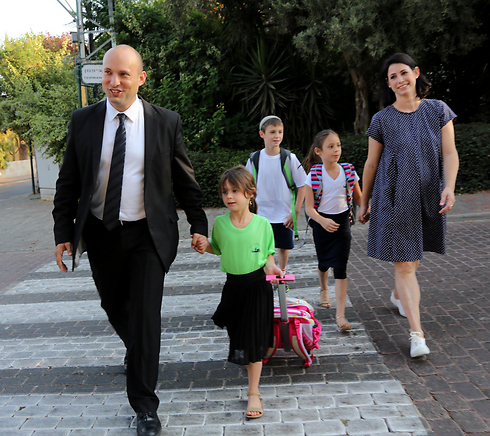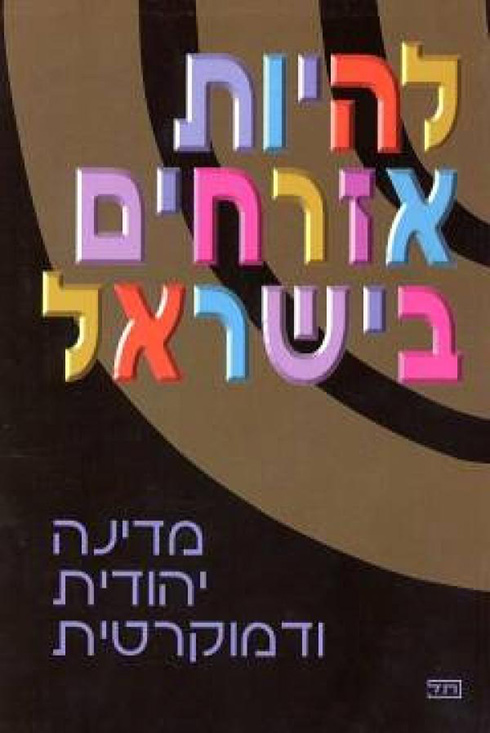
Educators who saw drafts of the new edition say it focuses more on the Jewish nature of the State of Israel rather than its democratic nature.
The new edition will replace the existing one from the year 2000 and will be one of three approved textbooks on the subject. School teachers and principals will be able to choose to teach from one of the three textbooks, but in the Arab sector it would be the only textbook on the subject to be translated into Arabic.
The Education Ministry said that since the textbook's last edition, Israeli society has undergone many changes, which led to the need to update of the civics curriculum in 2011. Four years ago, the process of updating the textbook began, and it is expected to be completed soon.
The Civics Teachers Council held an emergency meeting on Tuesday evening after the Education Ministry officially approved the new edition.
They complained about the lack of transparency in the process of writing the new edition. Most of them do not know what changes were made to the textbook, even though it is their job to teach the material in the textbook to students.
The Academic Forum for Civics Instruction, the Israel Political Science Association and the heads of the education departments in the Arab sectors, urged teachers not to use the textbook. In addition, they intend to demand Education Minister Naftali Bennett to immediately halt the "circulation of the main points in civics and the textbook which probably serves as inspiration to these main points."
But civics teachers and members of academia are not the only ones protesting the textbook. In recent days, 12th graders from across the country have been circulating a petition, which garnered some 1,300 signatures so far, calling on teachers not to use the textbook.
"According to experts who read drafts of the textbook, it presents Israel as a Jewish state, period, and pushes the values of democracy to the margins," the students wrote. "The principle of the rule of the majority has turned into the tyranny of the majority, and the differences between a citizen and a subject have become blurred. And if that is not enough, the writers are also rewriting reality and ignoring the existence of a Palestinian minority in Israel."
Anouk Savir Kadmon, one of the leaders of the protest, told Ynet on Wednesday: "As high school seniors, we are learning about democracy and we are learning that one of the duties of citizens in every democratic country is to be involved and protest. It cannot be that in history class last year we learned about the Palestinian refugee problem that was created in the wake of the War of Independence, and the new (civics) textbook has no mention of it."

Shahar Regev, a civics teacher, told Ynet, "Our main problem is that we were not included in the writing of the textbook. We were not given the opportunity to see the textbook in its current draft and we're not allowed to be more involved in writing it. These things create a disconnect between the textbook and its main ideas and what teenagers need."
The textbook, Regev says, "does not present the kind of democracy we grew up on. There are values like pluralism that is defined in the textbook as a condition that is not necessary for the existence of a democratic state. The rule of the majority is presented without the need to consider the rights of minorities. These are things that really bother us, as civics teachers."
Civics teachers in the Arab sector complained that they have yet to receive the Arabic translation of the textbook's main points. "This delay causes a significant drop in our students' achievements," says a civics teacher from Ar'ara.
"We're very concerned with the matriculation exams. When there's a shared curriculum to both sectors and we don't get translated materials, it leads to inequality between the Hebrew-speaking students and the Arabic-speaking ones," he added.
Assaf Malach, the chairman of the Education Ministry's Subject Committee, responded to the criticism: "These are really embarrassing claims, because we are dealing with people who haven't seen the textbook and don't know what it's about. The textbook has been reviewed by different readers, and hundreds of comments and changes made by people from different positions were taken into consideration. To me, this is civic involvement of the worst kind in which people have no idea what they're talking about and are not basing their criticism on facts."
Perhaps there really is an effort to direct the education system in a certain direction, by an education minister whose opinion is a bit different?
"This is an inherently professional issue. The education minister is not involved at all. The very fact there are claims and people are talking and expressing different opinions is a welcomed thing. There's no problem with that. Our problem right now with regards to the textbook is with people with distinct political interests who turned this entire discussion into a political debate, so we can't examine each issue by its own right anyway because it has all turned into a political argument between the right and left."

















